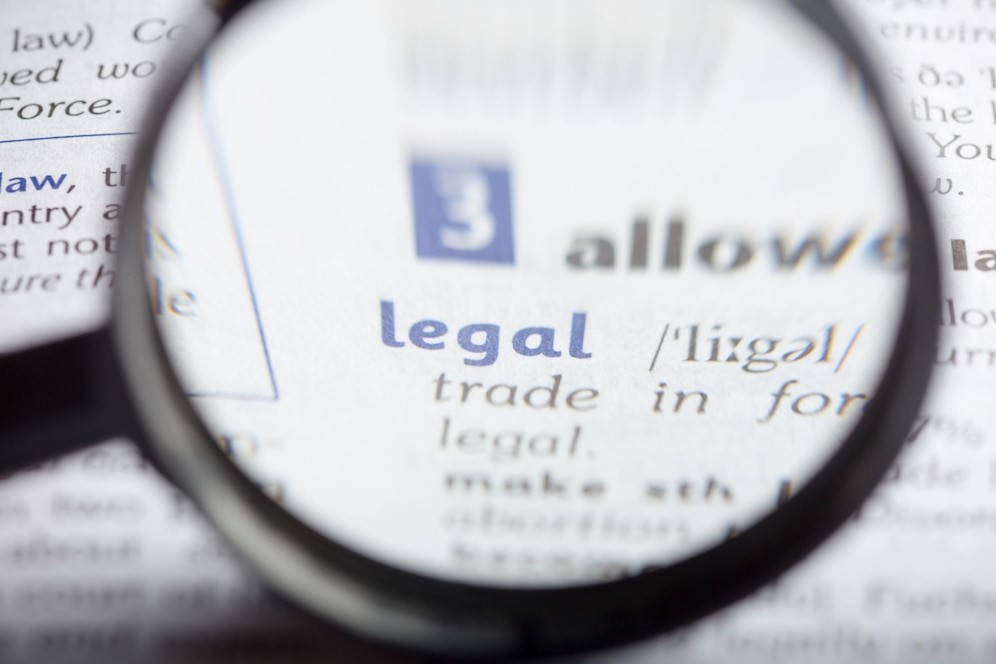As a landlord, you have a number of responsibilities that you need to fulfil in order to ensure that your tenants are safe and happy in their rented accommodation. These responsibilities include maintaining the property to a safe and habitable standard, ensuring that any repairs are carried out promptly and efficiently, and complying with all relevant legal requirements.

One of the most important responsibilities that you have as a landlord is to ensure that your property is safe for your tenants to live in. This means that you need to ensure that all gas and electrical appliances are safe and regularly maintained, that any fire safety equipment is in good working order, and that the property is free from any hazards that could pose a risk to your tenants’ health and safety.
In addition to these safety responsibilities, you also have a number of legal responsibilities that you need to fulfil as a landlord. These include ensuring that your tenants have a valid tenancy agreement, protecting their deposit in a government-approved scheme, and providing them with a copy of the government’s “How to Rent” guide. By fulfilling these responsibilities, you can ensure that you are operating within the law and providing your tenants with a safe and legally compliant place to live.
Start of Tenancy Obligations

As a landlord, you have certain obligations that you must fulfill at the start of a tenancy. These obligations are in place to ensure that your tenants are informed and protected throughout their tenancy.
Providing Necessary Information
One of your obligations as a landlord is to provide your tenants with necessary information at the start of their tenancy. This includes providing a copy of the How to Rent guide if you live in England, and a tenant information pack. You should also provide your tenants with a copy of the tenancy agreement, which should include information about:
- The rent and how it will be paid
- The deposit and how it will be protected
- The length of the tenancy
- The notice period required to end the tenancy
- Any other terms and conditions of the tenancy
It is important to ensure that your tenants understand the terms and conditions of the tenancy agreement. You should be available to answer any questions they may have and provide clarification where necessary.
In addition to the above, you must also provide your tenants with:
- An Energy Performance Certificate (EPC)
- A gas safety certificate (if the property has gas appliances)
- Electrical safety checks (if the property has electrical appliances)
By providing your tenants with this information, you are fulfilling your obligations as a landlord and ensuring that your tenants are informed and protected throughout their tenancy.
Deposits and Rent Regulations
As a landlord, you have certain responsibilities when it comes to tenancy deposits and rent regulations. Here are some key things you need to know:
Tenancy Deposits
When you take a deposit from a tenant, you must protect it in a government-approved tenancy deposit scheme (TDP) if you rent your home on an assured shorthold tenancy that started after 6 April 2007. You must do this within 30 days of receiving the deposit. This is a legal requirement and failure to comply can result in a penalty of up to three times the amount of the deposit.
There are three government-approved TDP schemes: the Deposit Protection Service, MyDeposits, and the Tenancy Deposit Scheme. You must provide your tenant with details of the scheme you are using within 30 days of receiving the deposit. You must also provide them with certain prescribed information, such as the contact details of the scheme and how to apply for the return of the deposit.
At the end of the tenancy, you must return the deposit to the tenant within 10 days, provided there is no damage to the property or rent arrears. If there is a dispute over the deposit, the TDP scheme will provide a dispute resolution service.
Rent and Rent Increases
As a landlord, you have the right to set the rent for your property. However, you must be aware of certain regulations when it comes to rent increases. You cannot increase the rent during a fixed-term tenancy unless the tenancy agreement allows for it. If the tenancy agreement does not allow for rent increases, you must wait until the end of the fixed term before increasing the rent.
If the tenancy is periodic (rolling from month to month), you can increase the rent by giving the tenant notice. The notice period must be at least one month if the rent is paid monthly, or at least four weeks if the rent is paid weekly. You must also follow any rules set out in the tenancy agreement.
It is important to note that any rent increase must be fair and reasonable. You cannot increase the rent to an amount that is significantly higher than the market rate for similar properties in the area.
Overall, it is important to be aware of your responsibilities when it comes to tenancy deposits and rent regulations. By following the rules and regulations, you can ensure a smooth and hassle-free tenancy for both you and your tenant.
Health, Safety and Repair Duties
As a landlord, you have certain legal responsibilities to ensure that your property is safe and habitable for your tenants. This includes fulfilling your health, safety and repair duties.
Repairs
One of your primary responsibilities as a landlord is to ensure that your property is in good repair. This includes maintaining the structure and exterior of your property, such as the walls, roof, foundations, gutters, and external pipes, as well as ensuring that internal fixtures and fittings are in good working order.
Under the law, you must ensure that your property is fit for habitation and that it meets certain minimum standards. This means that you must address any issues that may pose a health or safety risk to your tenants, such as faulty wiring, gas leaks, or broken heating systems.
If your tenant reports a repair issue, you must respond promptly and take steps to address the issue within a reasonable timeframe. Failure to do so could result in legal action being taken against you.
Health and Safety
As a landlord, you have a duty to ensure that your property is safe for your tenants to live in. This includes providing adequate fire safety measures, such as smoke alarms and carbon monoxide detectors, as well as ensuring that gas and electrical systems are regularly inspected and maintained.
You must also ensure that your property is free from health hazards, such as damp or mould, and that it is properly ventilated to prevent the build-up of harmful gases and pollutants.
If you are unsure about your health and safety obligations as a landlord, it is recommended that you seek legal advice or consult with a qualified professional.
In summary, as a landlord, you have a legal responsibility to ensure that your property is safe and habitable for your tenants. This includes fulfilling your repair duties and ensuring that your property meets certain minimum standards for health and safety. By fulfilling these obligations, you can help to ensure the well-being of your tenants and avoid potential legal issues.
Respect for Tenant’s Privacy

As a landlord, it is your responsibility to respect your tenant’s privacy. This includes giving them proper notice before entering the property, except in cases of emergency. In most cases, you must provide at least 24 hours’ notice and gain consent from the tenant. You cannot enter the premises without the tenant’s permission, except in specific circumstances outlined by the law.
Tenants have a right to expect privacy when not in the unit. You should avoid entering the property without a good reason, and you must always respect your tenant’s right to quiet enjoyment. This means that you should not do anything that would interfere with their use and enjoyment of the property.
It is also important to note that tenants have the right to know what an inventory list says about their property. You should inform them of any changes to the rental agreement and give them ample time to review and sign any new documents.
In summary, respecting tenant privacy is a fundamental responsibility of every landlord. You should always provide proper notice before entering the property, avoid interfering with the tenant’s quiet enjoyment, and keep them informed of any changes to the rental agreement. By doing so, you can help ensure that your tenants feel comfortable and safe in their home, and you can avoid any potential legal issues that may arise from violating their privacy rights.
Eviction Rules and Regulations
As a landlord, it is important to understand the rules and regulations surrounding evicting a tenant. There are specific procedures that must be followed in order to legally evict a tenant, and failure to follow these procedures could result in legal consequences.
In England, there are two main types of tenancy agreements: Assured Shorthold Tenancies (ASTs) and Assured Tenancies. The eviction process differs depending on the type of tenancy agreement.
If you have an AST, you can use a Section 21 notice to evict your tenant. This notice can be used to evict a tenant at the end of their fixed-term tenancy or during a periodic tenancy. However, you must give your tenant at least two months’ notice in writing before the date you want them to leave. You cannot use a Section 21 notice if you have not provided your tenant with a copy of the government’s How to Rent guide or if you have not protected their deposit in a government-approved scheme.
If you have an Assured Tenancy, you cannot use a Section 21 notice to evict your tenant. Instead, you must use a Section 8 notice. This notice can be used if your tenant has breached the terms of their tenancy agreement, such as by not paying rent or causing damage to the property. You must give your tenant at least two weeks’ notice before you can apply to the court for an eviction order.
It is important to note that you cannot simply evict a tenant without following the proper procedures. You cannot change the locks or remove their belongings from the property. Doing so could be considered an illegal eviction and could result in legal action being taken against you.
In addition to following the proper procedures, it is also important to treat your tenant with respect and dignity throughout the eviction process. This includes communicating clearly with them about the reasons for the eviction and providing them with any necessary documentation.
Overall, understanding the rules and regulations surrounding eviction is an important part of being a landlord. By following the proper procedures and treating your tenants with respect, you can ensure a smooth and legal eviction process.
Responsibilities for Houses in Multiple Occupation
As a landlord of a house in multiple occupation (HMO), you have additional responsibilities to ensure the safety and well-being of your tenants. An HMO is a property rented out by at least three people who are not from one household but share facilities like the bathroom and kitchen.
Under the Housing Act 2004, larger HMOs that are of three or more storeys and occupied by five or more people forming at least two separate households must be licensed. The Licensing of Houses in Multiple Occupation (Prescribed Description) (England) Order 2018 has extended the scope of section 55(2)(a). Therefore, it is the landlord/manager’s responsibility to apply to the Council to license the property.
Below are some of the responsibilities you have as a landlord of an HMO:
Safety
You must ensure that the property is safe for your tenants to live in. This includes:
- Providing smoke alarms and carbon monoxide detectors on every floor of the property
- Ensuring that all gas and electrical equipment is safe and regularly maintained
- Ensuring that all furniture and furnishings provided are fire safe
- Providing adequate means of escape in case of fire
- Ensuring that all common areas, such as stairs and hallways, are well-lit and free from hazards
- Providing a fire safety risk assessment
Maintenance
You must ensure that the property is well-maintained and in good repair. This includes:
- Ensuring that the property is clean and free from pests
- Providing adequate heating and hot water
- Ensuring that all plumbing and drainage systems are in good working order
- Keeping the property in good decorative order
- Ensuring that all communal areas, such as kitchens and bathrooms, are kept clean and in good repair
Management
You must ensure that the property is well-managed. This includes:
- Providing your tenants with a tenancy agreement that sets out their rights and responsibilities
- Ensuring that your tenants have access to the property at all reasonable times
- Dealing with repairs and maintenance issues promptly
- Providing your tenants with notice before entering the property
- Ensuring that your tenants’ deposits are protected in a government-approved scheme
- Dealing with your tenants’ complaints and concerns promptly and fairly
As a landlord of an HMO, you have a duty of care to your tenants. By fulfilling your responsibilities, you can ensure that your tenants are safe, happy, and comfortable in their home.
Tax and National Insurance Obligations
As a landlord, you have certain tax and National Insurance obligations that you must fulfill. Here are some important things to keep in mind:
Income Tax
You are required to pay income tax on your rental income, minus your day-to-day running expenses. This means that you need to keep track of all your rental income and expenses, such as repairs, maintenance, and insurance. You can deduct these expenses from your rental income to arrive at your taxable profit. You will then pay income tax on this profit.
Class 2 National Insurance
If you are self-employed and earn more than a certain amount from your rental income, you will also need to pay Class 2 National Insurance. This is a flat rate weekly contribution that gives you access to certain benefits, such as the State Pension.
Registering for Self-Assessment
To pay your income tax and National Insurance, you will need to register for Self-Assessment with HM Revenue and Customs (HMRC). You will need to do this even if you already pay tax through PAYE (Pay As You Earn) on your employment income.
Deadlines
It is important to note that there are deadlines for paying your income tax and National Insurance. You will need to submit your Self-Assessment tax return by 31 January each year, and pay any tax due by the same deadline. If you miss the deadline, you may be charged a penalty.
Getting Help
If you are unsure about your tax and National Insurance obligations as a landlord, it is a good idea to seek professional advice. You can also find more information on the GOV.UK website, including details on allowable expenses and how to claim them.
Remember, fulfilling your tax and National Insurance obligations is an important part of being a responsible landlord. By keeping accurate records and paying your taxes on time, you can avoid penalties and ensure that you are complying with the law.
Changing a Regulated Tenancy
If you are a landlord and you want to change a regulated tenancy, there are certain steps you need to follow. A regulated tenancy is a type of tenancy where the rent is controlled by law, and the tenant has certain rights and protections.
To change a regulated tenancy, you will need to follow the guidelines set out by the government. You can find more information on this on the GOV.UK website.
One of the first things you will need to do is serve your tenant with a notice of change. This notice should include details of the proposed changes, such as the new rent amount and any changes to the tenancy agreement. You should also give your tenant a reasonable amount of time to respond to the notice, usually around 28 days.
If your tenant agrees to the changes, you will need to draw up a new tenancy agreement that reflects the changes. This should be signed by both you and your tenant, and a copy should be kept by both parties.
If your tenant does not agree to the changes, you may need to apply to the Rent Assessment Committee (RAC) for a determination of the fair rent. This is a legal process that involves an independent assessment of the rent by the RAC. You can find more information on this on the GOV.UK website.
It is important to note that you cannot change a regulated tenancy unless you have a valid reason for doing so. For example, if you need to carry out repairs to the property, or if the tenant is in breach of the tenancy agreement. If you do not have a valid reason for changing the tenancy, your tenant may be able to challenge the change in court.
In summary, changing a regulated tenancy can be a complex process, and it is important to follow the guidelines set out by the government. If you are unsure about any aspect of changing a regulated tenancy, you should seek professional advice.
Dispute Resolution
As a landlord, it is important to be prepared for any disputes that may arise with your tenants. Disputes can range from disagreements over rent increases to issues with repairs. It is essential to understand your responsibilities and obligations as a landlord to ensure that you handle any disputes fairly and legally.
One way to resolve disputes is through mediation. Mediation involves a neutral third party who helps both parties reach a mutually acceptable solution. This can be a cost-effective and efficient way to resolve disputes, rather than going through the courts. You can find a mediator through the Civil Mediation Council or the Royal Institution of Chartered Surveyors.
If mediation is not successful, you may need to take legal action. In England, you can apply to a tribunal to decide on certain rent disputes. In Scotland and Wales, there are different ways to solve rent disputes. You can find more information on rent disputes on the government’s website.
It is important to keep accurate records of any disputes and the steps you have taken to resolve them. This includes any correspondence between you and your tenant, as well as any receipts or invoices for repairs or maintenance. This will help protect you in case of any legal action.
Overall, it is important to be proactive in resolving disputes with your tenants. By understanding your responsibilities and obligations as a landlord, you can ensure that you handle any disputes fairly and legally.
Frequently Asked Questions
What are the core responsibilities of a landlord in Scotland?
As a landlord in Scotland, you have several core responsibilities. These include ensuring that your property meets the required safety standards, protecting your tenant’s deposit in a government-approved scheme, providing your tenant with a written tenancy agreement, and ensuring that your property is fit for human habitation.
What is included in a landlord checklist for renting a house?
A landlord checklist for renting a house should include several important items. These include ensuring that your property is safe and secure, making any necessary repairs before the tenant moves in, providing your tenant with a copy of the tenancy agreement, and ensuring that all appliances and electrical equipment are safe and in good working order.
What are the new rules for landlords in Wales?
In Wales, landlords must comply with the Renting Homes (Fitness for Human Habitation) (Wales) Regulations 2022. These regulations require landlords to ensure that their properties are fit for human habitation, have working smoke alarms on each floor, and have a carbon monoxide detector in any room with a solid fuel-burning appliance.
How often should a landlord obtain an electrical certificate?
In England, landlords are required to obtain an electrical safety certificate every five years. In Scotland, landlords must obtain an electrical safety certificate every five years as well. However, in Wales, landlords must obtain an electrical safety certificate every year.
What are the responsibilities of a landlord regarding mould?
Landlords have a responsibility to ensure that their properties are free from damp and mould. This includes repairing any leaks or water damage promptly, ensuring that the property is properly ventilated, and providing adequate heating to prevent condensation.
What constitutes a good landlord?
A good landlord is someone who takes their responsibilities seriously and ensures that their property is safe, secure, and fit for human habitation. A good landlord is also someone who communicates effectively with their tenants, responds promptly to any maintenance requests, and respects their tenant’s privacy and rights.



